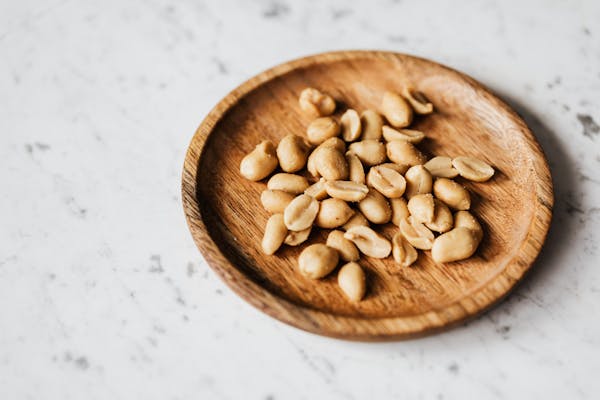One of the most well-liked and widely consumed nuts worldwide is the peanut. They are a flexible snack that can be used as a base for peanut butter or roasted and salted to enjoy in a variety of ways. In addition to being delicious, peanuts have a number of health advantages that make them a fantastic addition to any diet.
Even though they go by the name "nuts," peanuts are actually legumes. They are a rich source of protein, fiber, healthy fats, and a number of vitamins and minerals and grow underground. Antioxidants, which can help to shield the body from damage brought on by free radicals, are also abundant in peanuts.
Additionally, peanuts are a fantastic choice for people trying to keep their weight in check. Despite having a high calorie content, studies have shown that eating peanuts as part of your diet can aid in weight management. This is due to the high protein and fiber content of peanuts, which may aid in promoting feelings of fullness and lowering daily calorie intake. Additionally, the beneficial fats in peanuts can aid in appetite control and weight loss.
Due to their numerous health advantages, peanuts have grown in popularity as a research subject recently. Regular consumption of peanuts has been linked to improved brain function, a lower risk of heart disease, and a lower risk of some cancers. Additionally, peanuts can enhance digestion, support bone health, and control blood sugar levels.
Overall, eating peanuts has a wide range of health advantages, making them a great addition to any diet. Peanuts are a delicious and nourishing way to increase your overall health and well-being, whether you eat them as a snack or in your meals.
Rich in Vitamins
Nutrients that are crucial for good health are abundant in peanuts. They are a great source of vitamins and minerals like vitamin E, magnesium, and potassium as well as protein, fiber, and healthy fats. Regular consumption of peanuts can help to ensure that your body receives all the nutrients required for optimal function.
Promotes Heart Health
Studies have revealed that eating peanuts can assist in reducing the risk of developing heart disease. The monounsaturated and polyunsaturated fats in peanuts, which are good for you, can lower cholesterol and lessen inflammation in the body. Additionally, peanuts have been shown to contain antioxidants like resveratrol that enhance heart health.
Supports the Management of Weight
Despite having a high calorie content, studies have shown that eating peanuts as part of your diet can aid in weight management. This is due to the high protein and fiber content of peanuts, which may aid in promoting feelings of fullness and lowering daily calorie intake. Additionally, the beneficial fats in peanuts can aid in appetite control and weight loss.
Ensures Brain Health
Niacin, a B-vitamin that is crucial for brain health, is present in peanuts in significant amounts. Niacin supports cognitive function and may help lower the risk of cognitive decline brought on by ageing. Additionally, peanuts' beneficial fats can help to safeguard the brain from harm and support normal brain function.
Possibly lowers the risk of cancer
Eating peanuts may help lower the risk of developing some cancers, according to studies. Resveratrol, a potent antioxidant with demonstrated anti-cancer properties, is a component of peanuts. Additionally, peanuts' high fiber content can lower the risk of colon cancer.

